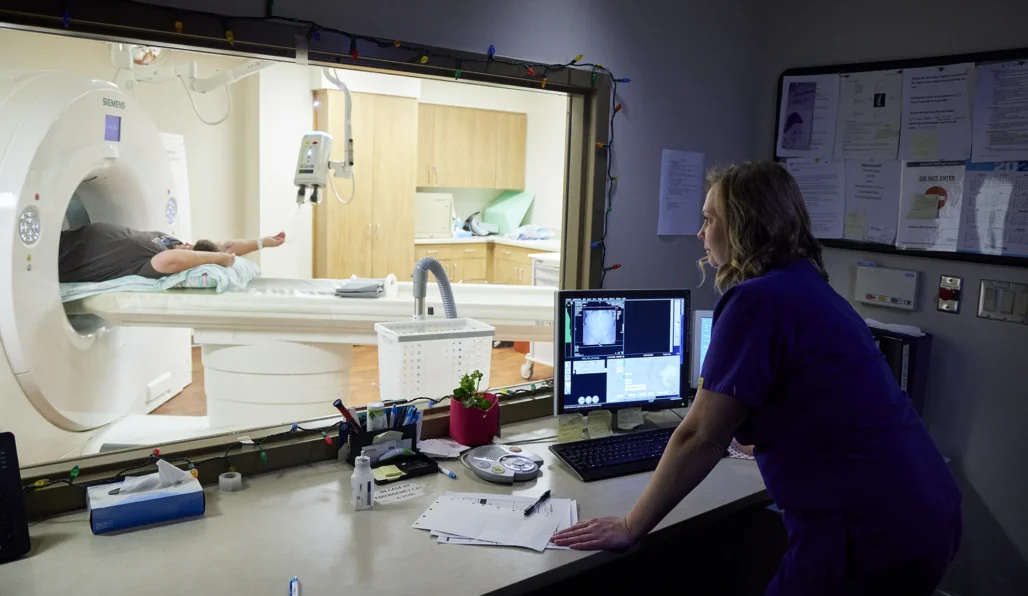A Comfortable Experience
Our MRI suite is designed for patient convenience and comfort. In addition, our MRI scanner has a 70-centimeter bore opening for the body part being scanned, compared to the 60-centimeter opening on our previous scanner. The larger opening fits people of all sizes and is better tolerated by people with anxiety about small spaces. Patients are better able to hold still when they feel comfortable in the scanner, which often results in the exam taking less time, while still producing excellent images.
High-Quality Scans
We designed our MRI suite to meet the highest standards for safety and quality. For example, our scanner has advanced software and more channels for collecting data, which produces detailed, high-quality images that help providers make prompt, accurate diagnoses and treatment decisions.
Magnet Safety
The powerful magnetic field produced by the MRI machine is capable of pulling certain metal objects toward it at bullet-like speed. If a magnetic object enters the room that contains the MRI magnet, whether it is carried (such as a oxygen tank or pair of scissors) or conveyed inside or on a person’s body (such as medical implants, body piercings, hair pin, or a set of keys in a pocket), there is a high risk of injury to the patient and any person standing between the magnetic object and the MRI scanner.
A key feature of our MRI suite is a ferromagnetic detection system that helps to ensure a safe environment for patients and our staff. The system triggers visual and audio alarms any time a magnetic object comes close to the entrance of the MRI room, so the unsafe object can be removed. If a non-removable magnetic object is present, it may be necessary to cancel the MRI and for the provider to order a different type of diagnostic test.
This short video shows the ferromagnetic detection system at work and how the visual alarm works:
What to Expect
If you’ve been scheduled for an MRI scan, our medical imaging department will contact you with instructions and details about your specific test. General information about preparing for and having an MRI scan is available here:
What to Expect About Your MRI Scan
Service Area
Our primary service area is McLeod County, Minnesota including: Biscay, Brownton, Glencoe, Hutchinson, Lester Prairie, Plato, Silver Lake, Stewart, and Winsted. We also service parts of Sibley County, including: Arlington, Gaylord, Green Isle, New Auburn, and Winthrop, as well as the western part of Carver County, including: Hamburg, Norwood, and Young America, and part of Renville County, including: Buffalo Lake.







